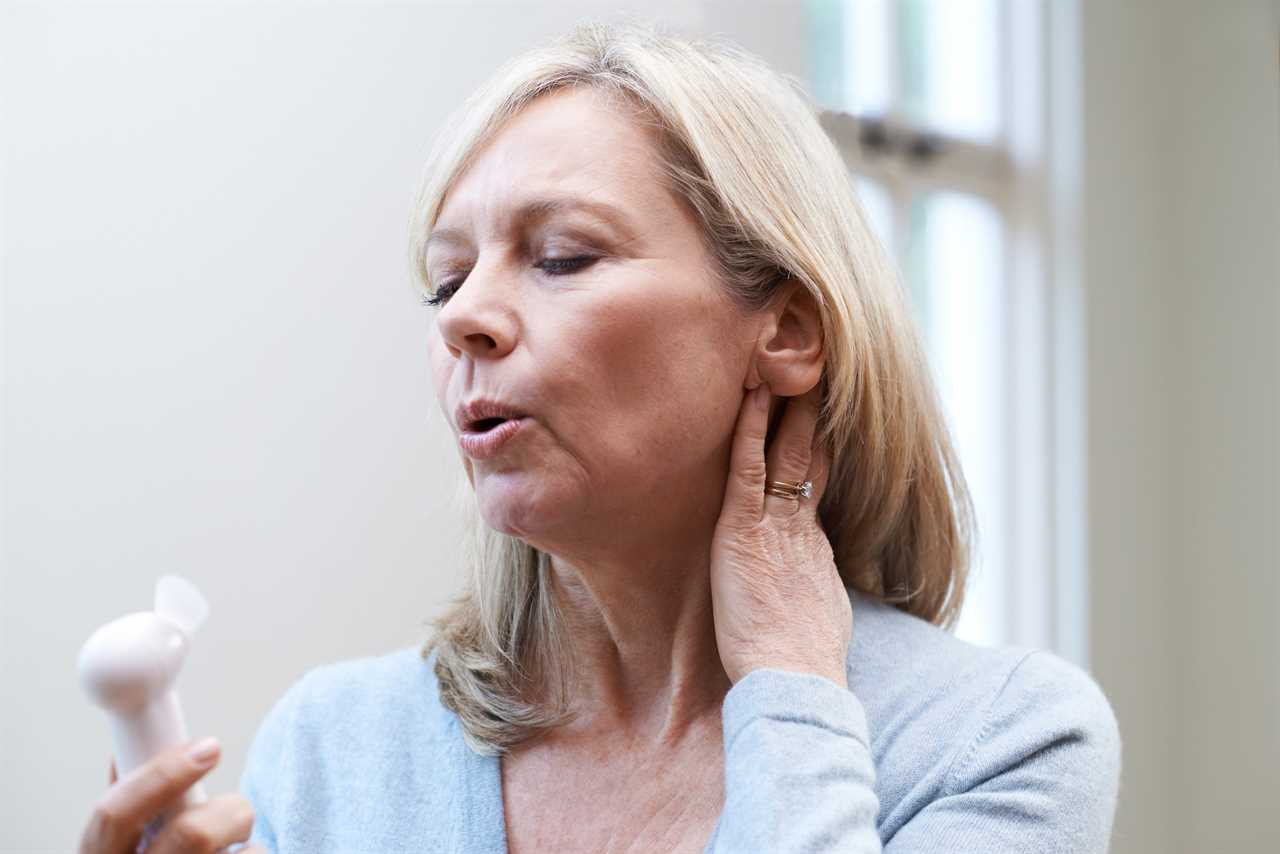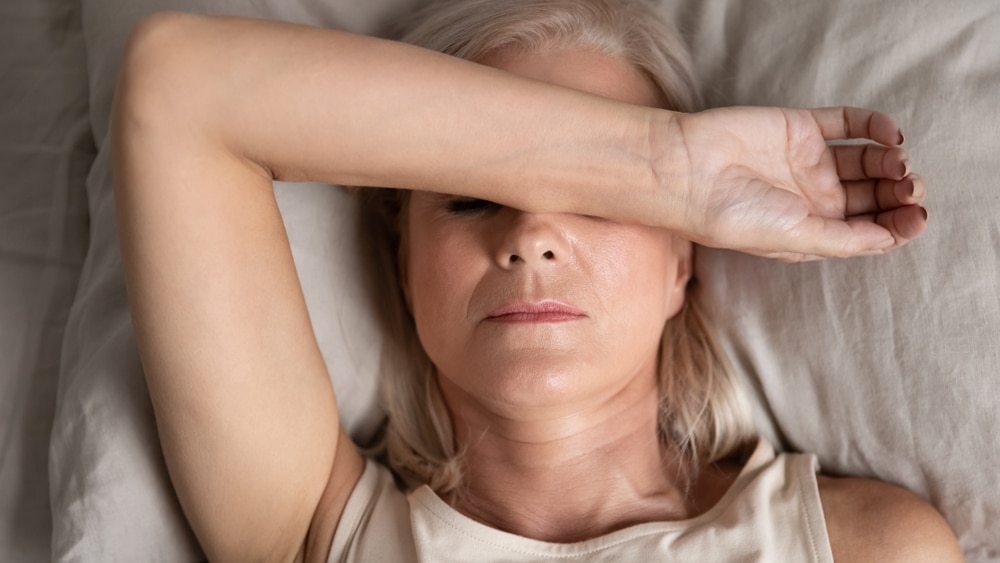Perimenopause—the transition time leading up to menopause—is a gradual process. Your hormones begin to fluctuate to prepare your body for the end of menstruation, and it can begin anywhere from your early 30s to your late 40s.
As your estrogen levels rise and fall, symptoms of perimenopause will come and go—which explains why you might be dealing with unexpected symptoms one week and feel like your normal self the next.
So, is menopause approaching?
Let’s explore the 9 common perimenopause signs that your body may be signaling to you.
Note: If you are experiencing many of these symptoms, it’s best to contact your doctor, who can help you determine if perimenopause is the suspected cause.
1. Your Periods Are All Over the Place

Are your periods suddenly all over the place? Maybe they don’t last as long, there’s a change in your flow, or you go a month or two without having one. This could be a telltale sign that you’ve entered perimenopause.
2. Sudden Hot Flashes

Photo Credit: DepositPhotos
Hot flashes are a common symptom of perimenopause. It’s far from the worst side effect but can be unpleasant and disruptive.
A hot flash is a sudden sensation of heat that often causes sweating, heart palpitations, and anxiety.
3. And Sudden Cold Flashes, Too

Photo Credit: Shutterstock
Cold flashes are another perimenopause sign. A cold flash is a sudden sensation of cold that can be accompanied by chills and goosebumps.
4. Frequent Night Sweats

Photo Credit: Shutterstock
Night sweats are one of the most common signs of perimenopause! A night sweat is when a person feels hot and sweaty during sleep.
Night sweats are typically more intense during perimenopause but can last throughout menopause as well.
5. Irritability and Mood Swings

Photo Credit: Shutterstock
In perimenopause, hormone levels fluctuate and can cause mood swings. Mood swings can include sadness, anxiety, irritability, and even anger.
6. Vaginal Dryness

Photo Credit: Shutterstock
Vaginal dryness is characterized by reduced hydration or fluid in the tissues of the vagina, which can lead to pain and irritation.
7. Trouble Sleeping

Photo Credit: Shutterstock
Between fluctuating hormones and night sweats, perimenopause can cause a disruption in how much sleep you’re getting.
Insomnia, trouble falling asleep, and the inability to get restful sleep can occur during perimenopause.
8. Trouble Concentrating

Photo Credit: Shutterstock
During perimenopause, memory and concentration problems can happen as estrogen levels drop, leading to insufficient blood flow to the brain.
9. Tender or Sore Breasts

Photo Credit: Shutterstock
Breast tenderness can occur in the premenopausal stages because of fluid retention and the fluctuation in hormones like estrogen and progesterone.
7 Best Supplements For Menopause Weight Gain

Photo Credit: Shutterstock
Menopause—typically diagnosed after you’ve gone 12 months without a period—can occur in your 40s or 50s, but the average age is 51 for women in the United States.
For many women, menopausal weight gain is a real issue. The silver lining? It’s normal! But with the right diet, lifestyle, and menopause supplements, it doesn’t have to be.
7 Best Supplements For Menopause Weight Gain
The Beginner Strength Training Guide for Women

Photo Credit: Shutterstock
Starting a strength training routine can be intimidating and confusing. Walk onto any weight floor in the gym, and it seems everyone there has a plan and knows what they’re doing but you!
Of course, the truth is that everyone had to start as a beginner at one time. That’s why we created this beginner strength training guide for women.
The Beginner Strength Training Guide for Women
Balance These 4 Hormones for Weight Loss

Photo Credit: Get Healthy U
Your hormones impact so many things—from your mood and energy levels to your weight.
When you are deficient or dominant in any one hormone, it’s easier to gain weight. This is particularly true for women who are experiencing hormonal imbalances caused by the natural aging process.
If you’re someone struggling with weight loss, you might benefit from understanding your hormone levels and trying natural ways to balance your hormones.
*** We deeply appreciate our sponsor *** |
 Image Credit: Carmela Hill / AuthorsUSA.com
Image Credit: Carmela Hill / AuthorsUSA.com |
Did you miss our previous article...
https://naturesmart.us/fitness/how-to-stop-eating-sugar-tips-and-tricks-to-break-the-habit
 HealthWellnessFitnessBeautyVideosPrivacy PolicyTerms And Conditions
HealthWellnessFitnessBeautyVideosPrivacy PolicyTerms And Conditions
